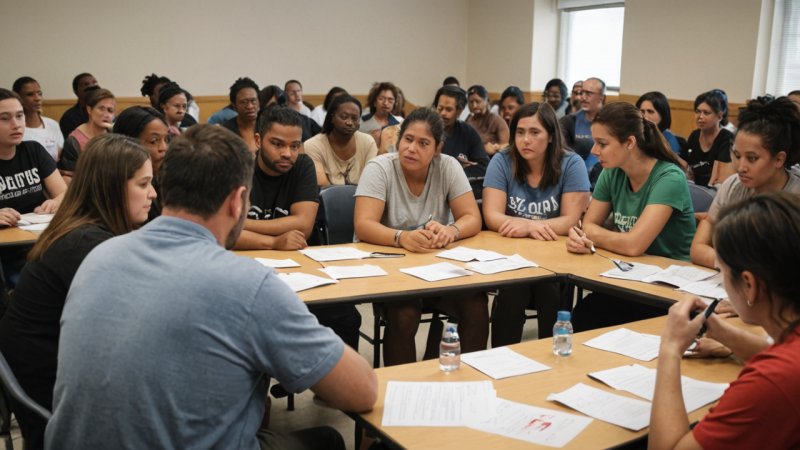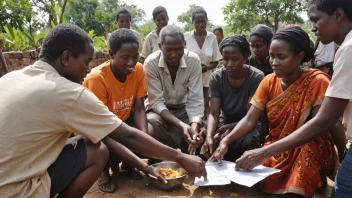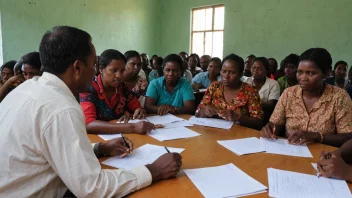Disasters, whether natural or man-made, have a profound impact on communities and individuals. The immediate aftermath often focuses on physical recovery—providing food, shelter, and medical assistance. However, the psychological scars left by such traumatic events can be just as debilitating, often lingering long after the visible signs of disaster have faded. Mental health support is a critical but frequently overlooked aspect of disaster relief efforts. Understanding the importance of mental health support, recognizing its effects on recovery, and knowing how to provide such support are essential for fostering resilience within affected communities.
Understanding the Psychological Impact of Disasters
The psychological consequences of disasters can manifest in various ways, including anxiety, depression, post-traumatic stress disorder (PTSD), and other mental health challenges. Survivors may experience a range of emotions such as grief, anger, confusion, and helplessness. These feelings can be compounded by loss—of loved ones, homes, or a sense of security. According to studies, the prevalence of mental health issues often increases significantly in the months and years following a disaster. For instance, a study conducted after Hurricane Katrina showed that many survivors struggled with long-term mental health issues, illustrating the need for ongoing support.
The Role of Mental Health Support in Recovery
Providing mental health support is crucial in the recovery process for several reasons. First, it helps individuals process their experiences and emotions, allowing them to begin healing. Engaging in therapy or support groups can provide a safe space for survivors to share their stories and connect with others who have faced similar challenges. Second, mental health support can improve overall well-being, enhancing individuals' ability to engage in rebuilding their lives and communities. When people feel supported emotionally, they are more likely to participate in recovery initiatives, volunteer, and help others, fostering a sense of community and resilience.
Strategies for Providing Mental Health Support
There are many ways to provide mental health support after a disaster. Here are some effective strategies:
- Professional Counseling: Engaging mental health professionals who specialize in trauma can help guide individuals through their recovery journeys. These experts can offer therapy options tailored to the specific needs of disaster survivors.
- Peer Support Groups: Establishing peer support groups allows individuals to share their experiences and emotions in a group setting. This fosters a sense of belonging and reduces feelings of isolation.
- Community-Based Initiatives: Local organizations can play a vital role in providing mental health resources. Community events that promote open discussions about mental health can help destigmatize seeking help.
- Education and Awareness: Providing education about the psychological effects of disasters can empower survivors to recognize their struggles and seek help. Workshops and informational resources can be invaluable.
The Importance of Cultural Sensitivity
When providing mental health support, it is essential to approach it with cultural sensitivity. Different communities have unique beliefs and practices surrounding mental health. Understanding these cultural nuances is crucial for effective communication and support. For instance, some cultures may view mental health issues as a stigma, while others may have strong community support systems in place. Mental health professionals and volunteers must be trained to recognize and respect these differences to provide the most effective care.
Long-Term Commitment to Mental Health
Disaster relief should not be seen as a one-time effort. The need for mental health support often persists long after the initial crisis. Continuous investment in mental health resources, training, and community programs is essential for fostering resilience in affected populations. Policy-makers and organizations must recognize the importance of mental health in recovery and allocate resources accordingly. This long-term commitment can significantly enhance the quality of life for disaster survivors and promote healthier communities.
How Individuals Can Get Involved
There are numerous ways individuals can contribute to mental health support in the aftermath of a disaster:
- Volunteer: Offer your time to local organizations focused on mental health support. Your presence can make a difference in the lives of those affected.
- Educate Yourself and Others: Learn about the psychological impact of disasters and share that knowledge with your community. Awareness is the first step toward action.
- Advocate: Support policies that prioritize mental health resources in disaster relief efforts. Engage with local leaders to ensure mental health is part of the recovery conversation.
- Be a Listening Ear: Sometimes, all someone needs is a friend to talk to. Providing emotional support to those who have been affected can be incredibly beneficial.
Conclusion
The importance of mental health support after a disaster cannot be overstated. As communities navigate the complex recovery process, addressing psychological well-being alongside physical needs is essential for fostering resilience and rebuilding lives. By understanding the profound effects of trauma, implementing effective support strategies, and committing to long-term care, we can help individuals and communities heal. Everyone has a role to play in this effort, whether through professional support, community initiatives, or individual actions. Together, we can make a significant difference in the lives of those affected by disasters, ensuring that they not only survive but thrive in their recovery journey.






